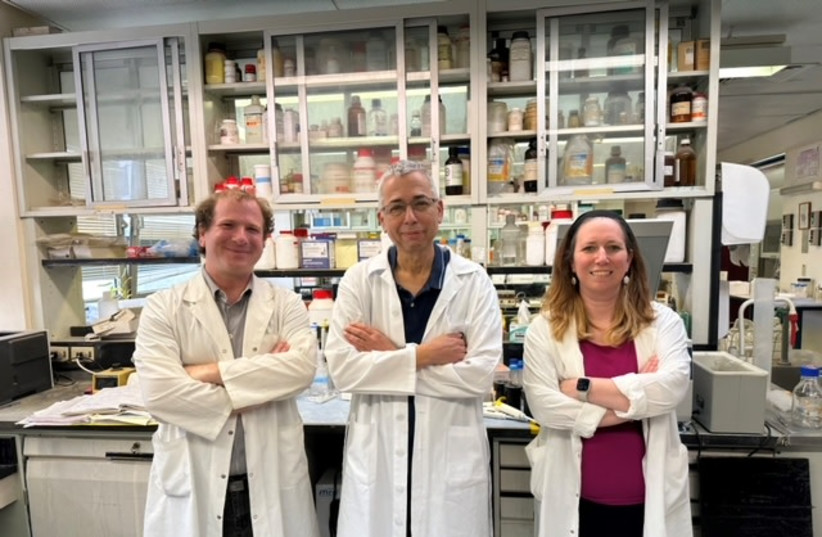A 57-year-old man in serious condition with advanced lung cancer has been treated successfully for the first time for acute hypoglycemia at the Hadassah-University Medical Center in Jerusalem’s Ein Kerem. The “scientific breakthrough” will be good news for patients worldwide, according to Prof. Gil Leibowitz of the hospital’s Diabetes Research Center.
The man, who suffered from acute hypoglycemia, arrived unconscious at the hospital, and despite giving him all the conventional treatments, the doctors couldn’t balance his sugar levels, which endangered his life. “We decided we had to fight for him, and the results were seen within a few hours,” Leibowitz added.
Cooperation among the hospital’s various departments and the doctors' resourcefulness led to the breakthrough, which has just been published in the prestigious New England Journal of Medicine under the title “Alpelisib in Intractable Non–Islet-Cell Tumor Hypoglycemia” and has already aroused reactions around the world.
The link between lung cancer and hypoglycemia, and why a breast cancer treatment helped
Leibowitz explained that the patient with malignant lung cancer suffered from a rare complication in which the tumor secretes a protein that causes acute hypoglycemia. The tumor released a protein that radically increased the absorption of sugar into the muscle, causing a very sharp drop in blood sugar. This is a well-known complication in the medical world, but no proven treatment has been found.
Hypoglycemia is a condition in which blood-sugar levels are very low and cause severe effects, including confusion, blurred vision, change in behavior, seizures, and sometimes even death.

The patient was treated with a variety of conventional drugs to raise his blood sugar levels and had to receive a continuous glucose transfusion directly into the vein daily, which greatly affected his lifestyle and functioning.
The medical team included Dr. Aviad Zik of the oncology day-hospitalization unit; Prof. Avivit Cohen from the endocrinology department; Dr. Matan Fisher, deputy director of the internal medicine department; and Dr. Yael Riahi, a researcher in the endocrinology department.
“We started researching and looking for a solution for the patient until we came up with a drug called Alpalesib, which is meant for the treatment of breast cancer. It works by inhibiting the pathway activated by the same protein that is responsible for the increased absorption of sugar in the muscle and thus blood sugar levels rise,” Leibowitz noted. “The mechanism was never proven, but we knew we had nothing to lose. The patient’s condition was deteriorating, and we had to think out of the box and act immediately.”
Treating a patient with Alpalesib costs tens of thousands of dollars, and the patient’s family couldn’t afford it. When Leibowitz first applied to the pharmaceutical company for compassionate treatment, he was turned down because of the need for prior knowledge in the medical literature to use the drug in the context they wanted.
In 2019, the US Food and Drug Administration (FDA) approved Alpalesib (Piqray of Novartis Pharmaceuticals Corporation) as the first and only treatment specifically for patients with a PIK3CA mutation in HR+/HER2- advanced breast cancer.
After assistance from a national organization “Friends of Medicine,” they got an initial response to the drug and gave it to the patient. Within a few hours of treatment, the patient’s measurements changed amazingly. We saw a gradual increase in blood sugar levels. From the second day, the hypoglycemia had ended. Considering the results, the company agreed to fund the treatment for the patient as a compassionate treatment for the rest of his life.
To establish the mechanism of activity of the drug, the team contacted Prof. Shulamit Levenberg, head of the Tissue and Stem Cell Engineering Laboratory at the Faculty of Biomedical Engineering at the Technion-Israel Institute of Technology in Haifa, together with Hagit Shochat, a doctoral student in the lab. “For the first time in the world, we scientifically proved the effect of the drug on the absorption of glucose within muscle cells under the influence of that protein. We explained how the drug prevented the appearance of hypoglycemia,” said Leibowitz.
“The results were unequivocal and very exciting,” he concluded. “We thought out of the box and fought for the patient, the results were seen within a few hours, and we realized that we had reached something extraordinary that could provide a relatively simple solution to a challenging problem. We hope our article will lead to broader use of this drug for patients suffering from severe hypoglycemia and that the drug’s accessibility will increase for these patients.”
